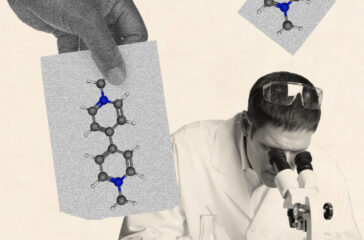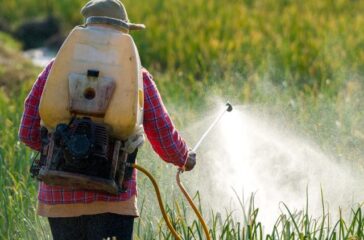Cancer risk doubles for Iowa, NC pesticide applicators who used carbaryl, study finds
By Brian Bienkowski
Pesticide applicators in North Carolina and Iowa who sprayed the insecticide carbaryl often during their career have a higher risk of getting stomach, esophageal, tongue and prostate cancers, according to new research led by the National Cancer Institute (NCI).
 EWG
EWG



